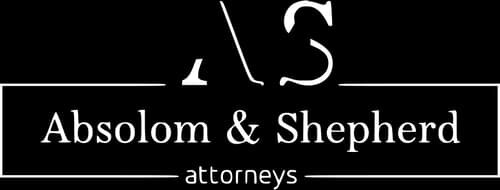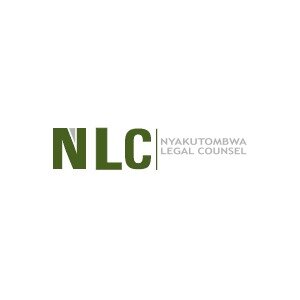Best Restructuring & Insolvency Lawyers in Harare
Share your needs with us, get contacted by law firms.
Free. Takes 2 min.
List of the best lawyers in Harare, Zimbabwe
About Restructuring & Insolvency Law in Harare, Zimbabwe
Restructuring and insolvency law deals with the legal processes that come into play when a business or individual in Harare, Zimbabwe, is unable to meet their financial obligations. This area of law provides structured procedures for managing the rights of creditors and the obligations of debtors. The main aim is either to rehabilitate businesses in distress so they can continue trading, or to wind up assets in an orderly manner to satisfy creditors. In Zimbabwe, these matters are mostly governed by the Insolvency Act and other related legislation. The procedures can be fairly complex, requiring careful guidance and adherence to specific legal requirements.
Why You May Need a Lawyer
There are numerous situations in which a person or business in Harare might need legal advice regarding restructuring and insolvency. Some of the most common scenarios include:
- When your business is facing significant cash-flow problems and cannot pay debts as they fall due
- If you or your business has received a demand from a creditor, or has been threatened with legal action for recovery of debt
- When negotiating with creditors for a possible restructuring of your debts or assets
- If you want to place your company under judicial management, liquidation, or are considering voluntary sequestration
- If you are a creditor of an insolvent individual or company and wish to recover as much of your debt as possible
- In cases that involve cross-border insolvency issues where the assets or creditors are located in different jurisdictions
- For directors and officers concerned about personal liability or obligations during insolvency proceedings
Legal advice is essential because the consequences of insolvency can be severe, including loss of assets, reputational damage, and even criminal liability in some cases. Lawyers can offer strategic options, safeguard your rights, and ensure all processes are carried out according to law.
Local Laws Overview
Zimbabwe’s legal framework for restructuring and insolvency is primarily set out in the Insolvency Act [Chapter 6:04], the Companies and Other Business Entities Act [Chapter 24:31], and various regulations. Some key aspects include:
- Judicial Management - A process where a third party (judicial manager) is appointed by the court to run a distressed company, with the aim of restoring its solvency.
- Liquidation/Winding Up - Involves dissolving a company and distributing its assets to creditors in priority order set out by law.
- Voluntary Sequestration - An individual who is insolvent may apply for sequestration of their estate so that assets are administered for the benefit of creditors.
- Creditor’s Rights - Creditors must follow legal procedures to claim debts and can participate in meetings or proceedings concerning the insolvent estate.
- Director’s Duties - Directors and officers have legal obligations to act in the best interests of the company and its creditors, especially when the company is nearing insolvency.
- Cross-Border Insolvency - While Zimbabwe does not have comprehensive laws for cross-border insolvencies, certain international principles may be recognized by the courts.
- Preferential Claims - The law sets out certain debts (like employee wages or taxes) that are paid before general creditors during the winding-up process.
It is important to note that insolvency can have various outcomes, including debt relief, reorganization, or the end of trading for a business. The involvement of the courts is common and procedural deadlines must be strictly observed.
Frequently Asked Questions
What is the difference between restructuring and insolvency?
Restructuring is the process of rearranging a company’s financial affairs to restore its profitability or solvency, whereas insolvency is the status where an individual or business is unable to pay debts as they become due. Restructuring can occur before or after insolvency is declared.
What options do I have if my business is failing financially?
Options include negotiating directly with creditors, applying for judicial management, restructuring debts, entering into a scheme of arrangement, or, if unsalvageable, liquidating the business.
What does judicial management mean in Zimbabwe?
Judicial management is a court-ordered process where an impartial judicial manager is appointed to run a distressed company, with the objective of rescuing it from insolvency.
How are creditors paid during liquidation?
Assets are collected and sold by a liquidator, and creditors are paid in a legally set order of priority, with certain claims like wages and taxes being settled before general unsecured creditors.
Can an individual declare insolvency in Zimbabwe?
Yes, individuals can apply for the voluntary sequestration of their estate in court if they are unable to pay their debts.
What are the responsibilities of directors during insolvency?
Company directors have a duty to act honestly and in the best interests of the company and its creditors. They must not continue trading recklessly or incur additional liabilities when the company cannot pay its debts.
Will I lose all my assets if I am declared insolvent?
Not necessarily. Certain assets may be protected by law, but generally, assets will be used to pay off creditors. The court may allow retention of some personal effects as prescribed by law.
Can creditors force my company into liquidation?
Yes, if your company is unable to pay its debts, a creditor can apply to the High Court for a liquidation order.
What happens to employees in an insolvent company?
Employees are considered preferential creditors for unpaid wages and benefits, meaning they are paid before unsecured creditors during the liquidation process, subject to statutory limits.
How long does insolvency or liquidation take in Zimbabwe?
The duration varies. Simple liquidations may take months, while complex cases involving multiple assets and creditors can take years. Delays may arise due to litigation and asset realization challenges.
Additional Resources
If you need more information or assistance, consider the following resources:
- The High Court of Zimbabwe - Handles company liquidations, judicial management, and sequestration applications.
- Zimbabwe Revenue Authority (ZIMRA) - Provides clarification on taxes owed by insolvent estates.
- Ministry of Justice, Legal and Parliamentary Affairs - Offers updates on legislative changes affecting insolvency.
- Institute of Chartered Accountants of Zimbabwe (ICAZ) - Professionals qualified to act as liquidators or judicial managers.
- Law Society of Zimbabwe - Directory of registered lawyers specializing in restructuring and insolvency.
Next Steps
If you believe you require advice or legal representation regarding restructuring or insolvency in Harare, Zimbabwe, here are some practical steps to consider:
- Gather all relevant financial documents for your business or personal situation, including debts, assets, contracts, and communications with creditors.
- Consult with a lawyer who has experience in insolvency and restructuring law as early as possible. Early intervention often results in better outcomes.
- Be honest and transparent with your legal advisor about your financial status and any actions already taken.
- Consider mediation or negotiation before formal proceedings, but always follow your lawyer’s advice regarding legal deadlines and requirements.
- Stay informed by accessing relevant resources and updates that may impact your situation.
Acting proactively and with the guidance of qualified professionals will improve your chances of achieving the best available outcome under Zimbabwean law.
Lawzana helps you find the best lawyers and law firms in Harare through a curated and pre-screened list of qualified legal professionals. Our platform offers rankings and detailed profiles of attorneys and law firms, allowing you to compare based on practice areas, including Restructuring & Insolvency, experience, and client feedback.
Each profile includes a description of the firm's areas of practice, client reviews, team members and partners, year of establishment, spoken languages, office locations, contact information, social media presence, and any published articles or resources. Most firms on our platform speak English and are experienced in both local and international legal matters.
Get a quote from top-rated law firms in Harare, Zimbabwe — quickly, securely, and without unnecessary hassle.
Disclaimer:
The information provided on this page is for general informational purposes only and does not constitute legal advice. While we strive to ensure the accuracy and relevance of the content, legal information may change over time, and interpretations of the law can vary. You should always consult with a qualified legal professional for advice specific to your situation.
We disclaim all liability for actions taken or not taken based on the content of this page. If you believe any information is incorrect or outdated, please contact us, and we will review and update it where appropriate.














